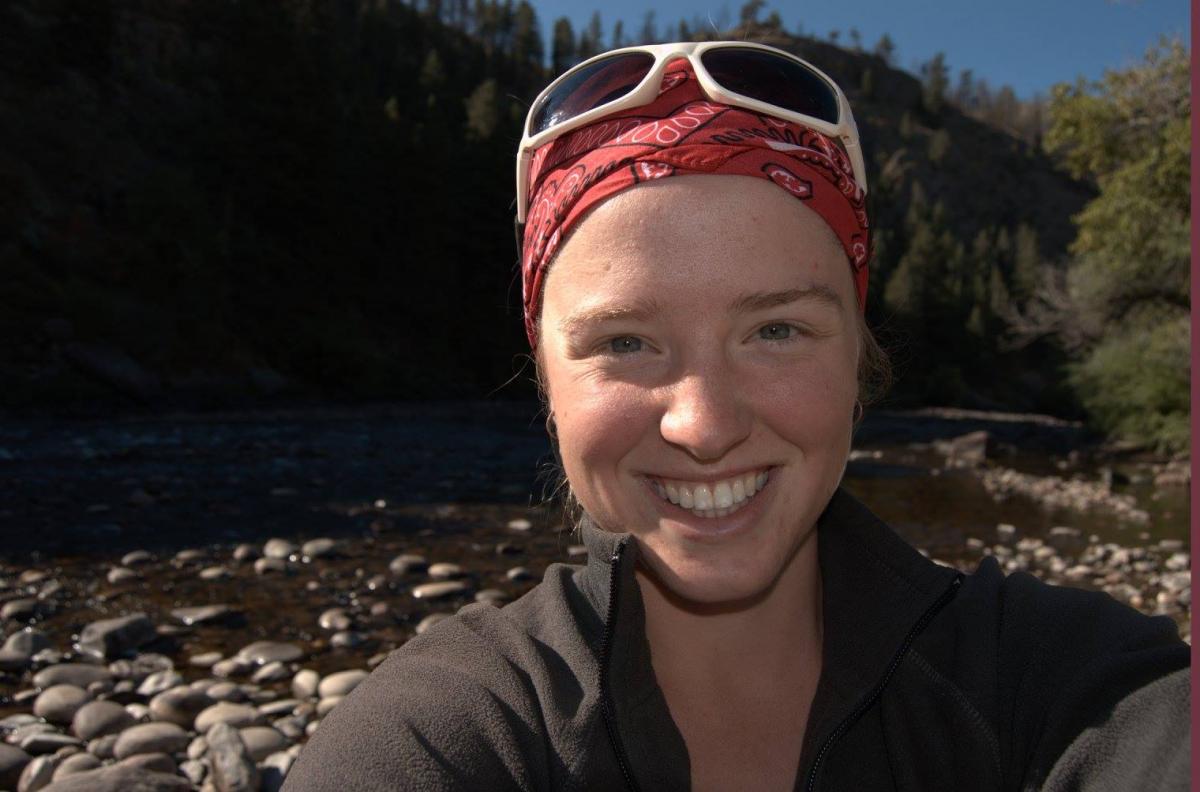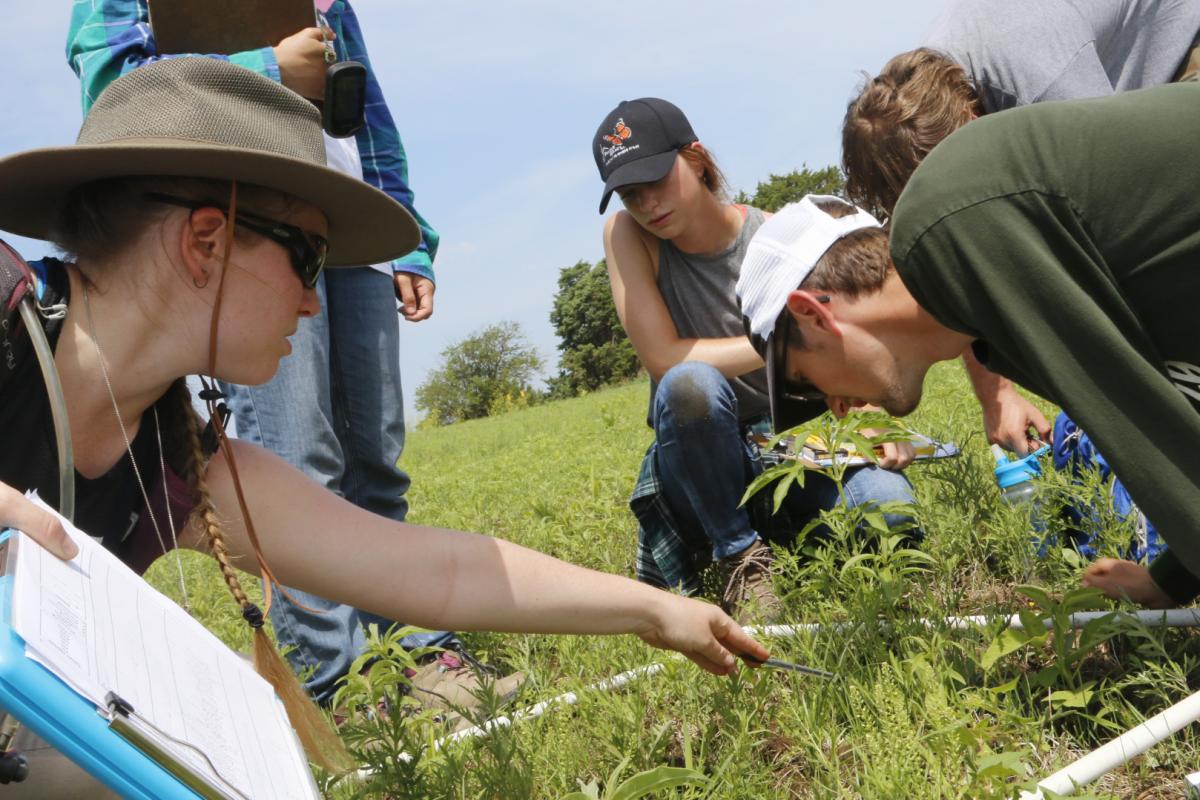
Doctoral student Katharine Hogan went from perks to publication by making good use of her NRT-paid membership in the Resilience Alliance.
Hogan connected with other scientists and researchers through the online forum and triennial conference of the Resilience Alliance, an interdisciplinary network of professionals advancing an understanding of how to make social-ecological systems more resilient and sustainable. Nebraska’s NRT pays for the annual membership of its graduate students in the alliance and arranged for Hogan, four other graduate students and two professors to attend the conference just outside Atlanta on May 12-16, 2019.
At the conference, Hogan met Elena Bennett, a McGill University professor and ecologist with more than 60,000 citations of her research. Two months later, Hogan heard from another Resilience Alliance Young Scholars member that Bennett was seeking help writing about managing ecosystem services.
“That’s what I’m writing about for my dissertation, so I jumped on the opportunity,” Hogan said.
She, Bennett and Kirsty Nash, who is a research fellow at the University of Tasmania in Australia, wrote a chapter in a book being edited by Michael Ungar, professor at Dalhousie University in Canada. The book is scheduled for publication by Oxford University Press this year.
Hogan recognizes she would not have had these international connections or the writing opportunity if she had not taken part in the Resilience Alliance and its conference and forum.
“For me, as a young scientist, the best aspect of the Resilience Alliance was the networking,” Hogan said. “I joined the organization in January 2019, and already, something good has come out of it.”
The book will focus on how different disciplines such as psychology, engineering, public health, policy and ecology use the term resilience and put it into operation in social-ecological systems. Hogan wrote about this from the ecology perspective.

“I wrote about adaptive management, an iterative, structured decision making and learning framework that managers apply at certain scales,” Hogan said. “It’s a way that you get all of your stakeholders together, define your objectives, come up with hypotheses of what you think is going to happen, enact those management decisions, monitor, take what you learned from that first round, and reapply it. Stakeholders then ask ‘OK, what did the system do? What did we learn? Based on what we learned, do we want to keep these objectives or do something different?’”
When she and her coauthors discussed how much each of them contributed to the chapter, the three decided Hogan should probably be listed first in the chapter byline, which is a coup for a young researcher.
“It hasn’t been finalized yet, but as of now, I’m the first author on it, so that’s really nice,” Hogan said.
She said the book will be available by open access and she looks forward to reading what scientists in other disciplines have written in their chapters.
“I don’t know how many chapters the editor has, but the list of disciplines he was going to have people writing on was pretty impressive,” she said. “I’m excited to read the rest of it.”
She will need to fit her reading in with her writing though because another writing opportunity came through Resilience Alliance Board of Directors member Craig Allen, who also directs Nebraska’s NRT.
“Craig asked me if I want to write another book chapter with him, so I’m hoping to do that next,” she said.
— Ronica Stromberg, National Research Traineeship Program Coordinator


